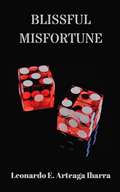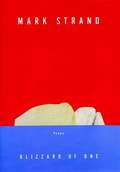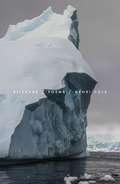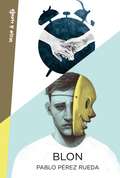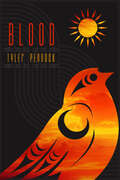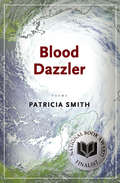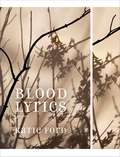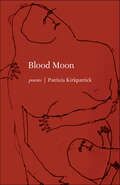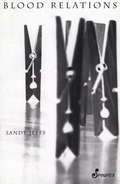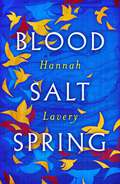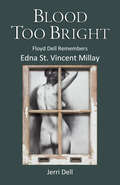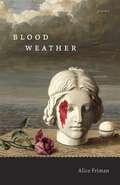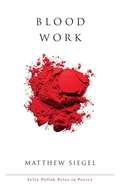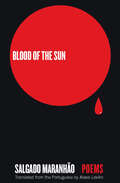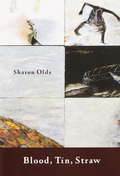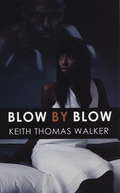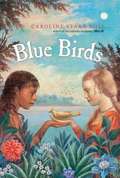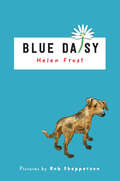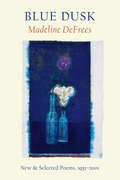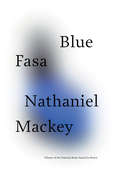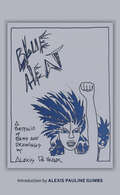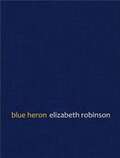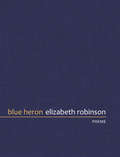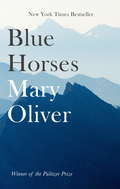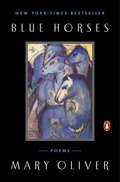- Table View
- List View
Blissful Misfortune
by Leonardo E. Arteaga IbarraMy limited and pitiful metaphorical language is incapable of describing the phenomenon that you are. It is inadequate for representing the fantastic dreamlike world of winged creatures, exuberant landscapes and mythical beings that are shown to me by your word and the empire of your starless eyes. I have lost track of the time, writing and composing clumsy expressions of lazy poems that comparing them to others end up being far from masterpieces nor genuine manifestations of love. What can I say about you that you do not know? Any present analogy is an author’s matter that does not stem from God nor black magic. Am I allowed to say that you are a flower? Or maybe that your eyes light up the sky? I wonder if I am allowed to compare the colour of the sunset with the end of life, or what I feel. Is it spring the beginning and dawning? While October and autumn announce the pain? Is it true that honey can be compared to tenderness and purple hue to what they last? Needless to mention the comparison between faraway stars with something as absurd as a utopia or even worse than that; to compare women with poetry, which, nonetheless, are just vain metaphors. It is true…poetry feeds off metaphors –for some people, to think about them takes hours- and rhymes are just a poem’s decoration, that is to say, to make them is to over-exaggerate them. As psychoanalysts say, the creation of metaphors is not more than a symptom: “a shaping of commitment”, it only takes a few clues to expose what is being restrained; something that the subject embraces to represent their suffering. It intrigues me to think about it, I like to think that science is not so different from lyrical composition. And, those creations allow me to block out the monstrously psychotic hole and turn it into the misery of a helpless neurotic, in this case, into a simple blissful misfortune.
Blizzard Of One: Poems
by Mark StrandStrand's poems occupy a place that exists between abstraction and the sensuous particulars of experience. It is a place created by a voice that moves with unerring ease between the commonplace and the sublime. The poems are filled with "the weather of leavetaking," but they are also unexpectedly funny. The erasure of self and the depredations of time are seen as sources of sorrow, but also as grounds for celebration. This is one of the difficult truths these poems dramatize with stoicism and wit. The winner of the Pulitzer Prize for Poetry, Blizzard of One is an extraordinary book--the summation of the work of a lifetime by one of our very few true masters of the art of poetry. <P><b> Winner of the 1999 Pulitzer Prize for Poetry </b>
Blizzard: Poems
by Henri ColeHenri Cole, one of our greatest poets, explores the discordant nature of our condition on earth in Blizzard, his tenth collection.“An artist of the greatest gifts.” —Louise GlückDaring, tender, truthful, the poems in Blizzard, Henri Cole’s tenth book, build on a reputation for quiet mastery. Whether he is wrestling with the mundane, history and its disasters, or sexual love, he can sound both classical and contemporary, with the modern austerity of Cavafy and Bishop. Often exploring the darker places of the heart, his sonnets do not lie down obediently, but spark with an honest self-awareness. Cole’s lucid, empathetic poems—with lyrical beauty and ethical depth—seem to transmute the anxious perplexities of our time.
Blon (edición pack con: Eternamente | Hemisferios)
by Pablo Pérez Rueda (Blon)Descubre los dos primeros poemarios de Blon, ahora reunidos en este exclusivo pack. Eternamente es una declaración de intenciones, un intento de carta de amor incombustible a las cosas que, sin remedio, se acaban; a la persona que quieres que esté, aun corriendo el riesgo de que un día se marche. "Lo que creemos juntos no durará siempre, todo se acaba, pero seguirá en el recuerdo eternamente". Hemisferios, sin embargo, se centra en mostrar las distintas miradas, las caleidoscópicas visiones que los seres humanos tenemos de la realidad y que, sorprendentemente, llegan a viajar de un extremo al otro, desde la oscuridad a la luz o viceversa, descubriéndonos que la verdad depende del ojo desde el que se mira. Este estuche reúne los dos poemarios de Pablo Pérez Rueda, más conocido como Blon, una de las voces más importantes del rap, el freestyle y también de la poesía actual. Sus versos se mueven entre lo cotidiano y lo emocional, con un toque filosófico y social que apela a la actualidad y a nuestro mundo más inmediato. Están repletos de emoción y talento, trascendiendo el ritmo urbano de su música para convertirse en algo distinto y original: pura poesía.
Blood
by Tyler PennockBlood follows a Two-Spirit Indigenous person as they navigate urbanity, queerness, and a kaleidoscope of dreams, memory, and kinship. Conceived in the same world as their acclaimed debut, Bones, Tyler Pennock's Blood centres around a protagonist who at first has difficulty knowing the difference between connection and pain, and we move with them as they explore what it means to want. Pennock weaves longing, intimacy, and Anishinaabe relationalities to recentre and rethink their speaker's relationship to the living—never forgetting non-human kin. This book is a look at how deep history is represented in the everyday; it also tries to answer how one person can challenge the impacts of that history. It is a reminder that Indigenous people carry the impacts of colonial history and wrestle with them constantly. Blood explores the relationships between spring and winter, ice and water, static things and things beginning to move, and what emerges in the thaw. "A music as sensitive as it is revelatory." — Canisia Lubrin, author of The Dyzgraphxst
Blood Dazzler: Poems
by Patricia SmithIn minute-by-minute detail, Patricia Smith tracks Hurricane Katrina as it transforms into a full-blown mistress of destruction. From August 23, 2005, the day Tropical Depression Twelve developed, through August 28 when it became a Category Five storm with its "scarlet glare fixed on the trembling crescent," to the heartbreaking aftermath, these poems evoke the horror that unfolded in New Orleans as America watched it on television.Assuming the voices of flailing politicians, the dying, their survivors, and the voice of the hurricane itself, Smith follows the woefully inadequate relief effort and stands witness to families held captive on rooftops and in the Superdome. She gives voice to the thirty-four nursing home residents who drowned in St. Bernard Parish and recalls the day after their deaths when George W. Bush accompanied country singer Mark Willis on guitar:The cowboy grins through the terrible din,***And in the Ninth, a choking woman wailsLook like this country done left us for dead.An unforgettable reminder that poetry can still be "news that stays news," Blood Dazzler is a necessary step toward national healing.Patricia Smith is the author of four previous collections of poetry, including Teahouse of the Almighty, winner of the Hurston/Wright Legacy Award and the Paterson Poetry Prize. A record-setting, national poetry slam champion, she was featured in the film Slamnation, on the HBO series Def Poetry Jam, and is a frequent contributor to Harriet, the Poetry Foundation's blog. Visit her website at www.wordwoman.ws.
Blood Lyrics: Poems
by Katie Ford"Katie Ford's is a finely-wrought lyrical beauty, a poetry of detail and care, but she has set it within an epic arc." —PoetryI lie still, play dead, am delivered decree:our daughter weighs seven hundred dimes,paperclips, teaspoons of sugar,this child of gramsfor which the good nurselaid out her studiesas a coin purseinto which our tiny wealth clinked,our daughter spilling almostto the floor.—from "Of a Child Early Born"In Katie Ford's third collection, she sets her music into lyrics wrung from the world's dangers. Blood Lyrics is a mother's song, one seared with the knowledge that her country wages long, aching wars in which not all lives are equal. There is beauty imparted, too, but it arrives at a cost: "Don't say it's the beautiful / I praise," Ford writes. "I praise the human, / gutted and rising."
Blood Moon: Poems
by Patricia Kirkpatrick&“Why would I expect to feel blameless?&”Troubled and meditative, Blood Moon is an examination of racism, whiteness, and language within one woman&’s life. In these poems, words are deeply powerful, even if—with the onset of physical infirmity—they sometimes become unfixed and inaccessible, bringing together moral and mortal peril as Patricia Kirkpatrick&’s speaker ages. From a child, vulnerable to &“words / we learned / outside and in school, / at home, on television&”: &“Some words you don&’t say / but you know.&” To a citizen, reckoning with contemporary police brutality: &“Some days need a subject and an action / or a state of being because it&’s grammar. / The cop shot. The man was dead.&” And to a patient recovering from brain surgery: &“I don&’t have names. / Words are not with me.&”Throughout the collection, the moon plays companion to this speaker, as it moves through its own phases, disappearing behind one poem before appearing fully in the next. In Kirkpatrick&’s hands, the moon is confessor, guide, muse, mirror, and—most of all—witness, to the cruelty that humans inflict upon one another. &“The moon,&” she reminds us, &“will be there.&”Compassionate, contemplative, occasionally wonderstruck, Blood Moon is a moving work of moral introspection.
Blood Relations
by Sandy JeffsThese poems are an evocative documentation of the harrowing experiences of a child living in a hostile and unhappy home. Pain and bitterness accompany the conflicting emotions of growing up in a family torn apart by domestic violence and alcoholism.
Blood Salt Spring: The Debut Collection from Edinburgh's Makar
by Hannah LaveryFrom Hannah Lavery Edinburgh’s new Makar. In a moment that is demanding you to constantly choose your side, how do you find your humanity, your own voice, when you are being pushed to find safety in numbers? Blood Salt Spring is a meditation on where we are – exploring ideas of nation, race and belonging. Much of the collection was written in lockdown and speaks to that moment, the isolation and the traumas of 2020 but it also looks to find some meaning and makes an attempt to heal the pain and vulnerabilities that were picked and cut open again in the recent cultural shifts and political wars. Organised into three sections this book takes the reader on a journey from the old inherited wounds, the trauma of tearing open again these chasms within recent discourses and events, to a hopeful spring, where pain and trauma can be laid down and a new future can be imagined. In this collection, the poet has sought to heal these salted wounds, and move out of winter and into spring – into hope.
Blood Too Bright: Floyd Dell Remembers Edna St. Vincent Millay
by Floyd Dell Jerri DellWhat lips my lips have kissed, and where, and why,I have forgotten*One hundred years ago, Bohemian author and editor of the radical Masses magazine, Floyd Dell, began a passionate affair with a newcomer to Greenwich Village — the yet to be discovered “girl poet,” Edna St. Vincent Millay. In the years that followed, both Dell and Millay became symbols of early 20th century feminism, rebellion and literary freedom.A century later, while poring over her grandfather Floyd’s papers at Chicago’s Newberry Library, Jerri Dell discovered hundreds of handwritten letters and an unpublished memoir about his love affair with Millay. Finding him as outlandish, entertaining and insightful as he was when she knew him fifty years before, she chose to bring him and his poet lover back to life within the pages of this book.Admirers of Edna Millay — as well as literary and political history buffs, Bohemian Village enthusiasts, and readers interested in writers who famously influenced social norms — are sure to enjoy this eye-witness account of a fascinating woman and exceptional poet. My candle burns at both ends;It will not last the night* *Excerpts from Sonnet XLIII and First Fig by Edna St. Vincent Millay
Blood Weather: Poems
by Alice FrimanBlood Weather, Alice Friman’s sharply etched new collection of poetry, reminds readers that times of reckoning are marked by blood: the knife, the sword, the cutting word. Blood runs through our history, stories, religion, and art, and we cannot help but play our part by adding to the storm of “fang and claw” and its inherent sorrow. Friman traces this unending path through biblical tales, the war of the sexes, the continuum of art, and her own family and personal life. Her poems reflect on figures ranging from Lady Macbeth—whom Friman sees in the blood-red tree outside her bedroom window—to Cain and Abel in the biblical account of the first murder, through Judge Judy’s frustrations when faced with the death of a marriage, to the poet herself as a child learning to read “the ancient writing of the butcher block / streaked with cuts and sacrifice” and the butcher’s hands, “blunt-fingered and stained.” By turns stark and resilient, the poems in Blood Weather draw on tragic themes and painful memories to evoke the tumult of human nature.
Blood Work
by Matthew SiegelBlood Work reveals what happens to the self when the body is compromised by illness. These poems explore the struggle to remain whole in the shadow of Crohn's disease and to make a home for oneself in the body and in the world.
Blood of the Sun: Poems
by Salgado Maranhão“A perfect English rendering of Salgado Maranhão’s deft expression of the tonality of this people and land.” —Gregory Rabassa, acclaimed American translatorIn poems brilliantly textured and layered, Salgado Maranhão integrates socio-political thought with subjects abstractly metaphysical. Concrete collides with conceptual—butcher shops, sex, and machine guns in conversation with language, absence, and time—resulting in a collection varied as well as unified, an aesthetic at once traditional and postmodern. Writing in forms both fixed and free, Maranhão’s language suggests a jazz-like musicality that rings true in Alexis Levitin’s masterful translations. For readers who enjoy the complexity of Charles Simic, or the stylistically innovative syntax of César Vallejo, Maranhão’s Blood of the Sun is a sensually provocative amalgamation of both.“Alexis Levitin’s translation of the Afro-Brazilian poet Salgado Maranhão’s Blood of the Sun succeeds in negotiating the quirky experimental richness of Maranhão’s Pre-Columbian, Amazonian, and Yoruba influences with his traditional rhymed lyrics and jazz-like syncopations . . . Levitin skillfully alerts us to the presence of a complex and offbeat poet whose work merits a wide audience.” —Colette Inez, author of The Secret of M. Dulong“What we see are classic themes of chivalry, reflections on the rural, a playful, imaginative use of language, a mix of romance and realism, and—oh yes—love, lyric narratives of calm resignation.” —Harvest Time“Salgado Maranhão deliberately stretches the meanings of words up to their very limits to see if he can get more meaning out of words than they normally have.” —Plattsburgh Press-Republican
Blood, Tin, Straw
by Sharon OldsWinner of the 2000 Paterson Poetry Prize"She has written without embarrassment or apology, with remarkable passion and savagery and nerve, poems about family and family pathology, early erotic fascination, and sexual life inside marriage."--Amy HempelSharon Olds divides this new book into five sections--"Blood," "Tin," "Straw," "Fire," and "Light"--each made up of fourteen poems whose dominant imagery is drawn from one of these elements. The poems are rooted in different moments of an ordinary life and weave back and forth in time. Each section suggests the progression of the making of a soul cleansed by blood, forged by fire, suffused by light. Unafraid to confront the ecstatic or the brutal side of a woman's experience, Sharon Olds transforms her subjects with an alchemist's art, using language that is alternately casual and startling, fierce and transcendent. This is an intensely moving collection by one of our finest poets.From the Hardcover edition.
Blue Birds
by Caroline Starr RoseIt's 1587 and twelve-year-old Alis has made the long journey with her parents from England to help settle the New World, the land christened Virginia in honor of the Queen. And Alis couldn't be happier. While the streets of London were crowded and dirty, this new land, with its trees and birds and sky, calls to Alis. Here she feels free. But the land, the island Roanoke, is also inhabited by the Roanoke tribe and tensions between them and the English are running high, soon turning deadly. Amid the strife, Alis meets and befriends Kimi, a Roanoke girl about her age. Though the two don't even speak the same language, these girls form a special bond as close as sisters, willing to risk everything for the other. Finally, Alis must make an impossible choice when her family resolves to leave the island and bloodshed behind. A beautiful, tender story of friendship and the meaning of family, Caroline Starr Rose delivers another historical gem.
Blue Daisy
by Helen FrostSam and Katie find a stray dog and make a big mistake, but it's hard to make amends--how can you apologize to a dog?A dirty, skinny, dog shows up in Sam and Katie's neighborhood. They start to follow it, and they don't like what they see: The Wilson sisters yell at it because it goes in their garden and the Tracy twins chase it on their bikes and throw things at it. Sam and Katie want the dog to know they'll be its friends. They think it should have a name. Most of all, they want it to like them. But then they do something thoughtless, and after that, it's hard to make things right, especially because the dog now won't come near them. How they earn the dog's trust, help it find its place in their town and how it gets its name, makes for a heartwarming story told in two voices using prose and poetry. Blue Daisy is illustrated with 20 black-and-white illustrations and includes recipes for dog biscuits and snickerdoodles.
Blue Dusk
by Madeline DefreesContradiction and ambiguity are essential to the poetry of Madeline DeFrees. Her work is concentrated, multi-layered, spliced with humor and characterized by a passionate interest in every aspect of words: their literal and figurative meanings and associations; their histories, usage, disappearances, and resurrections. In her recent poems she approaches complex subjects with a new clarity, the dividend of a long investment in the art of writing.Just as her poetry demands distance from personal biography and revelation, it is also deeply affected by her own life story, most profoundly her 38-year tenure as a nun. Throughout her writing career--from her early poems written under the name Sister Mary Gilbert, to her newest ones in which she casts a lifelong glance back through history and lineage--the need to reclaim individual identity is balanced against the relinquishment of the self.From Going Back to the Convent What was I running from or into? The uneasy light of the senior prom? Mother's dream of a a child bride, supported by pennies from heaven? Or was it the writing life laid as a sacrifice to a jealous god on the tomb of the woman I'd hoped to become? Whatever it was, it will soon Be over. I write this now to reclaim it.A student of John Berryman, Karl Shapiro, and Robert Fitzgerald, Madeline DeFrees has taught generations of poets and poetry students, and earned widespread acclaim for her own work. Madeline DeFrees has taught throughout the US, including at the University of Montana and the University of Massachusetts, Amherst, where she directed its Creative Writing program. She presently lives in Seattle, WA.
Blue Fasa
by Nathaniel MackeyA stellar new collection of poems by "the Balanchine of the architecture dance" (The New York Times), and winner of the National Book Award in poetry. Nathaniel Mackey's sixth collection of poems, Blue Fasa, continues what the New Yorker has described as the "mythological conception" and "descriptive daring" of his two intertwined serial poems--where, however, "no prior knowledge is required" for readers new to this poet's visionary work. This collection takes its title from two related black musical traditions, a West African griot epic as told by the Fasa, a clan in ancient Ghana, and trumpeter Kenny Dorham's hard bop classic "Blue Bossa," influenced by the emergence of Brazilian bossa nova. In two sections Blue Fasa opens with the catch of the heart and the call of romance, as it follows a band of travelers, refugees from history, on their incessant migrations through time, place, and polity, toward renewal.
Blue Heat: A Portfolio of Poems and Drawings (Sapphic Classic)
by Alexis De VeauxIn 1984, Alexis De Veaux independently published and distributed Blue Heat. Mainstream publishing's interest in work by radical Black women was waning and De Veaux knew that she could reach women with the poems in Blue Heat directly---and she knew they needed these poems.Forty years later, Blue Heat is a Sapphic Classic from Sinister Wisdom with a stunning new introduction and guiding exercises for engaging the poems by Alexis Pauline Gumbs. In Blue Heat, De Veaux insists on survival and encourages risk-taking. In these poems, liberation is necessary, and there is only one means to achieve it: by creating a spark. Blue Heat brings intensity akin to the deepest, hottest part of a flame. Like its namesake, this poetry collection is flammable, igniting courage in its readers, achieving De Veaux goal of kindling a spirit of "power, joy and change" in the Black feminist communities.
Blue Heron
by Elizabeth RobinsonThe poems in Blue Heron delineate a passage through grief and change. Here, personal loss is continuous with threats to other species and landscapes. In response, Robinson has uprooted the terrain of language, "what / bestows itself from / the almost-invisible / and its stain." If these uprootings are casualties of a poetics seeking to redress imbalance and "pollution," then they are also opportunities to rethink what can exist in the field of poetic language as "roots also quicken, bruise their plural pronouns, lose tune, / forsake terrain by moving through and on it." And so Blue Heron links poetic process with organic process, presence with the gap we know as hauntedness. The page is not only a resonant physical field, but also a site of dialogue between human and landscape, between lack and manifestation. If these poems constitute a poetics of loss, they are equally a movement toward a poetics of openness, risk, and renewed balance in which poetry shifts as "a form of weather, a form/of following, falling from the form/as it twists."
Blue Heron (Mountain West Poetry Series)
by Elizabeth RobinsonThe poems in Blue Heron delineate a passage through grief and change. Here, personal loss is continuous with threats to other species and landscapes. In response, Robinson has uprooted the terrain of language, “what / bestows itself from / the almost-invisible / and its stain.” If these uprootings are casualties of a poetics seeking to redress imbalance and “pollution,” then they are also opportunities to rethink what can exist in the field of poetic language as “roots also quicken, bruise their plural pronouns, lose tune, / forsake terrain by moving through and on it.” And so Blue Heron links poetic process with organic process, presence with the gap we know as hauntedness. The page is not only a resonant physical field, but also a site of dialogue between human and landscape, between lack and manifestation. If these poems constitute a poetics of loss, they are equally a movement toward a poetics of openness, risk, and renewed balance in which poetry shifts as “a form of weather, a form/of following, falling from the form/as it twists.”
Blue Horses: Poems
by Mary OliverMaybe our world will grow kinder eventually.Maybe the desire to make something beautifulis the piece of God that is inside each of us.In this stunning collection, Mary Oliver returns to the imagery that has defined her life's work. Herons, sparrows, owls and kingfishers flit across the page in meditations on love, artistry and impermanence. Whether considering a bird's nest, the seeming patience of oak trees or the paintings of Franz Marc, Mary Oliver reminds us of the transformative power of attention and how much can be contained within the smallest moments.Blue Horses asks what it truly means to belong to this world and to live in it attuned to all its changes. 'To be human,' she shows us, 'is to sing your own song'.
Blue Horses: Poems
by Mary OliverIn this stunning collection of new poems, Mary Oliver returns to the imagery that has defined her life's work, describing with wonder both the everyday and the unaffected beauty of nature.Herons, sparrows, owls, and kingfishers flit across the page in meditations on love, artistry, and impermanence. Whether considering a bird's nest, the seeming patience of oak trees, or the artworks of Franz Marc, Oliver reminds us of the transformative power of attention and how much can be contained within the smallest moments.At its heart, Blue Horses asks what it means to truly belong to this world, to live in it attuned to all its changes. Humorous, gentle, and always honest, Oliver is a visionary of the natural world.
